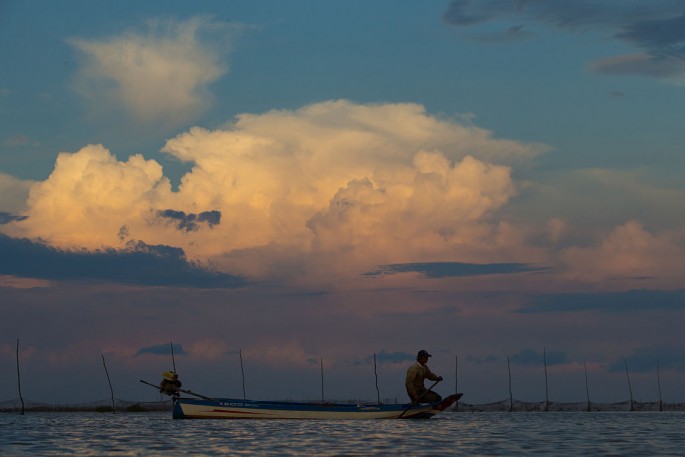A drought has hit Ben Tre Province in Vietnam's southern Mekong Delta, the worst one that has hit the region in recent years, according to an article by China Daily. China has responded to Vietnam's calls for aid, sending twice the amount of water discharged from the Jinghong Hydropower Station.
According to the Chinese Ministry of Water Resources, the volume of water discharged from March 15 to April 10 will be three to three-and-a-half times more than the normal flow.
The first wave of water has already arrived at the southern portion of the Mekong River in Vietnam on Monday, April 4, the Vietnam News Agency (VNA) reported.
The volume of the water is enough to keep the area well supplied until April 29, said Tran Duc Cuonga, a senior official from the Mekong River Commission in Vietnam.
The water traveled all the way from the upper reaches of the Mekong River, known as Lancang River in Chinese, in Yunnan Province, southwest China.
Farmers are grateful for the momentary relief, as the drought has caused saline levels to affect rice and oyster production. The saline intrusion has also affected households, as the coastal areas can no longer be used for irrigation or drinking.
Through the aid, the intrusion of saltwater will be reduced by 6 to 10 kilometers, spreading in several tributaries of the Mekong River.
"It will not rain soon. So, if water discharged from China's dam comes here, even if there is no rain, the water will help ordinary people like us to save rice fields, and cut costs on water for domestic use and on animal feed, making our daily lives better," shared Nguyen Ti Lua, a rice farmer in Ben Tre, in an interview with the Xinhua News Agency.
Other farmers are not so optimistic with the situation.
"I have heard the news that China has increased the amount of water discharged to the lower reaches. But it is too far away from here," said an anonymous resident hailing from Ap Thua Thanh village. "Even if the water flows to here, it would be far from enough to stop the inland saline intrusion."



























